What to Learn from Tabletop RPGs to Build Rich Narrative Games
15 January 2025
Tabletop role-playing games (TTRPGs) have been around for decades, captivating players with their immersive worlds, intricate stories, and boundless creative freedom. If you're a game developer or a storyteller, you're probably wondering: what makes TTRPGs like Dungeons & Dragons so phenomenal at building rich narratives? And more importantly, how can you use those same lessons to create better narrative-driven video games?
Well, rest easy, because you're about to find out. From player agency to collaborative storytelling, tabletop RPGs have a lot to teach us about crafting compelling narratives that stick with players long after the credits roll. So, let’s roll for insight and dive in, shall we? 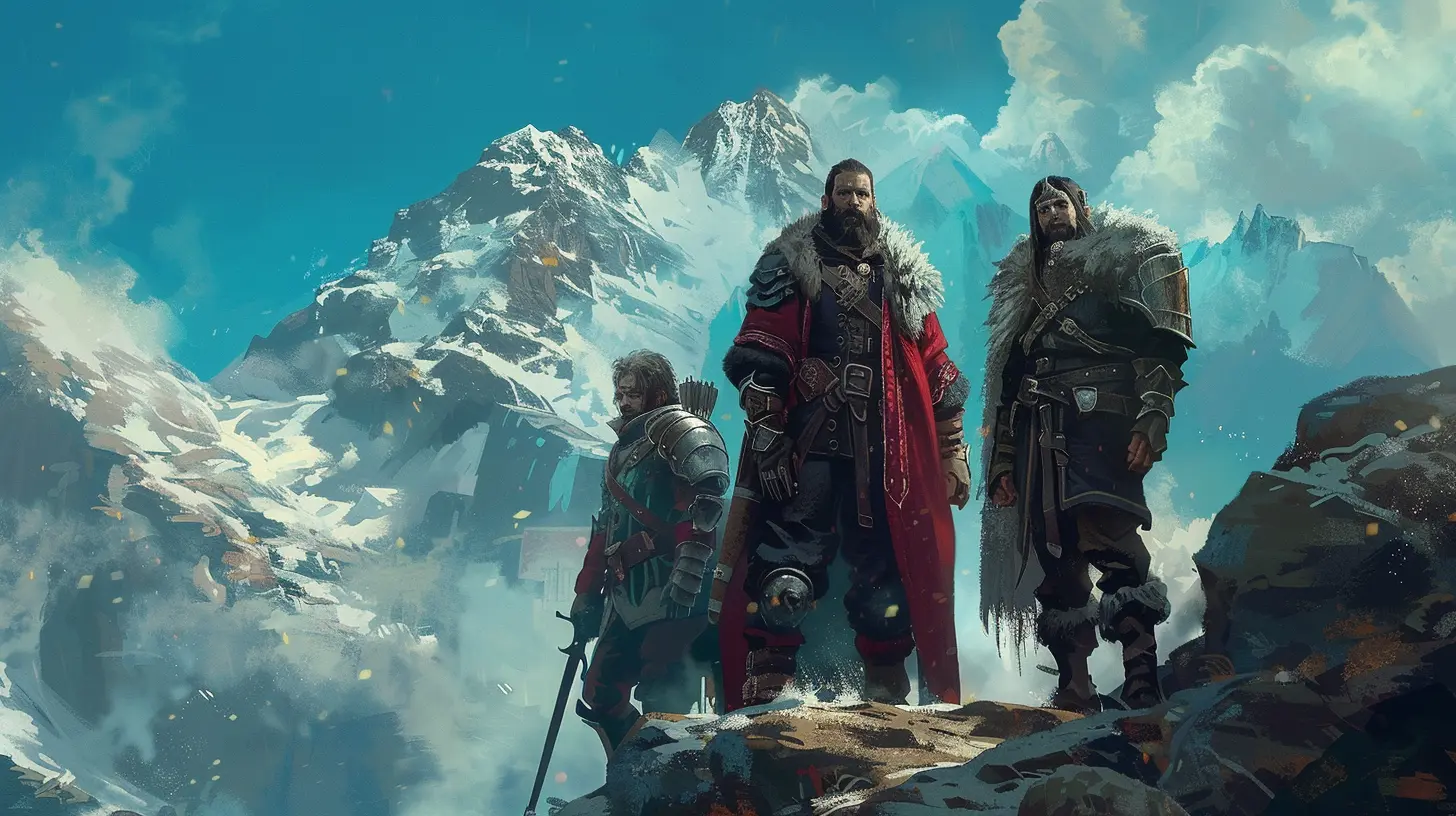
The Art of Player Agency
One of the most striking features of TTRPGs is the sheer freedom they offer players. You’re not bound by linear paths or pre-scripted choices. Instead, players are the architects of their own stories. This concept—commonly known as player agency—is essential if you want players to truly connect with your narrative.Why Player Agency Matters
Think about it: in a tabletop RPG, the dungeon master (DM) sets the stage, but the players decide what happens next. They might choose to negotiate with a dragon instead of fighting it or skip a well-planned dungeon entirely. The beauty is in how the DM reacts to these choices, ensuring the story evolves organically.In video games, giving players meaningful choices creates that same sense of ownership. Games like The Witcher 3 and Mass Effect excel at this. The decisions you make ripple throughout the story, making the narrative feel alive.
Takeaway: Create branching paths and let players feel like their decisions matter. Even if their choices affect small moments rather than the entire plot, the key is to give them a sense of control. 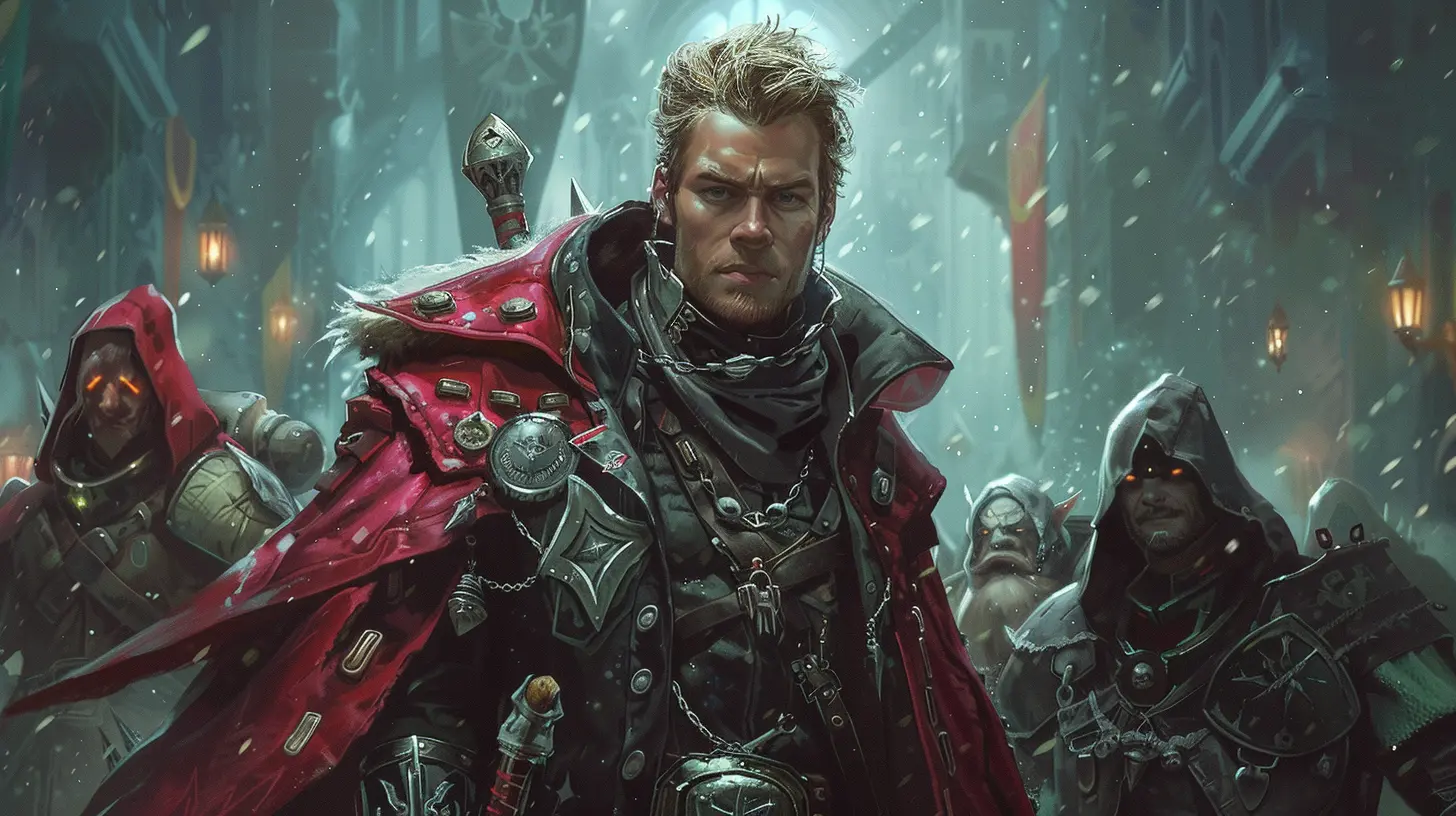
Collaborative Worldbuilding
If you've ever played a TTRPG, you know that the story doesn’t just emerge from the DM’s plans; it’s a collaborative effort. Players flesh out their characters’ backstories, motivations, and quirks, which all contribute to the larger narrative. In essence, the story belongs to everyone at the table.Applying Collaborative Storytelling to Video Games
Now, you might think, "But video games aren't played in groups. How does this apply?" Here’s the deal: you can integrate elements of collaborative storytelling by allowing players to personalize their experience.Character creation tools are a great starting point. Games like Dragon Age: Origins and Cyberpunk 2077 allow players to customize their characters, and those choices often influence how NPCs react to them. But don’t stop there. Let players shape the world too. Give them the power to rebuild a broken town (Fallout 4 does this well) or to dictate the fate of entire factions.
Takeaway: The more input players have in shaping the world, the more invested they’ll feel in the story you're telling. 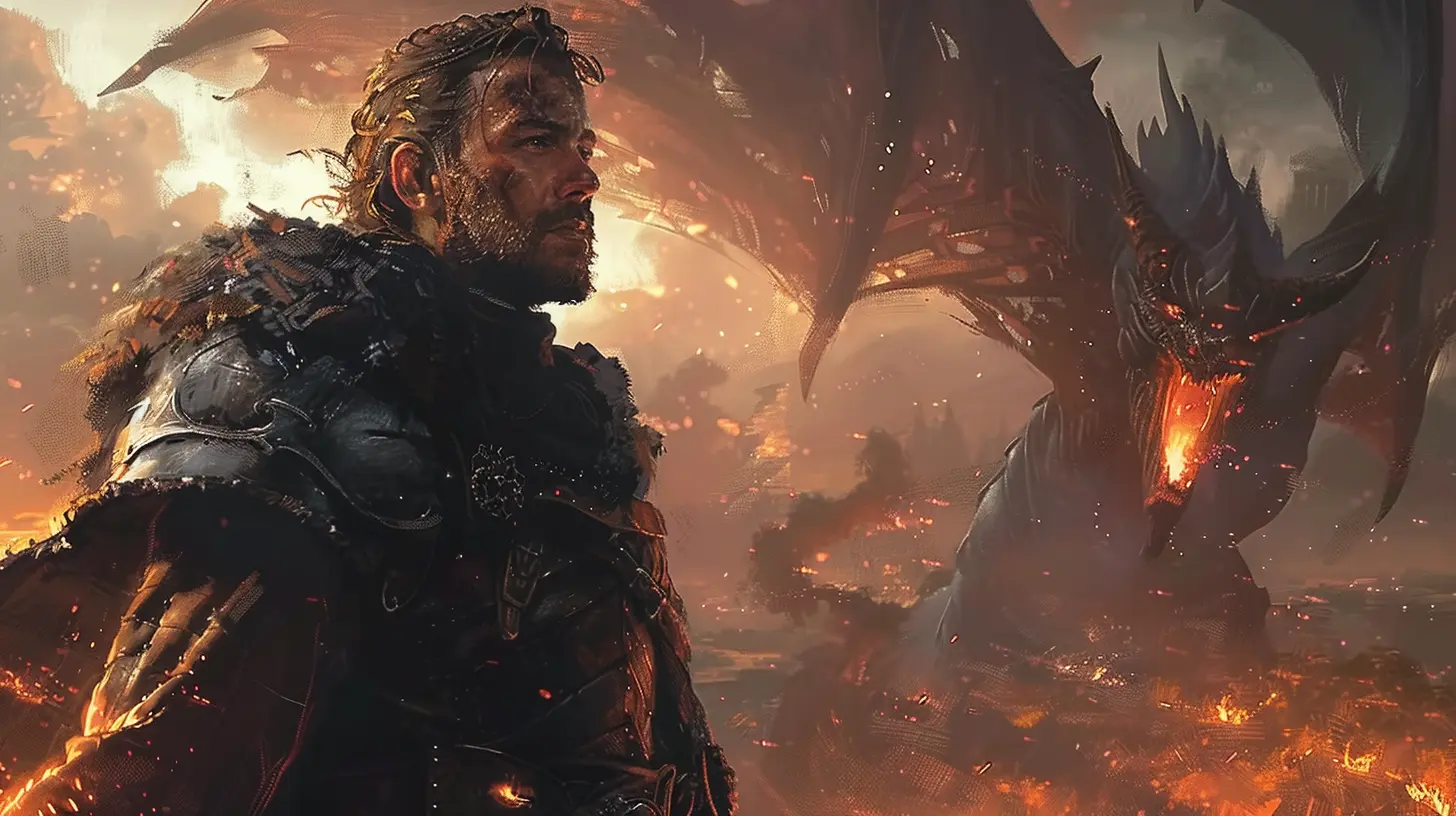
Dynamic NPCs and Reactive Dialogue
In TTRPGs, NPCs (non-player characters) are often lively and unpredictable. They react directly to players’ actions, building relationships (or rivalries) based on shared experiences. This dynamic relationship makes the world feel alive, like it’s not just waiting around for something to happen.Make NPCs Feel Like Real People
How can you incorporate this into your games? Start by creating NPCs that have their own goals, flaws, and personalities. Instead of just being quest dispensers or background filler, let them evolve alongside the player.Take Red Dead Redemption 2, for example. The members of Arthur Morgan’s gang are more than just companions. They have unique personalities, hold grudges, and even remember how you’ve treated them in the past. Their evolving relationships make the narrative feel personal in a way that pre-scripted interactions can’t.
Takeaway: NPCs should feel like fully realized characters rather than props. Bonus points if their dialogue changes based on player actions. 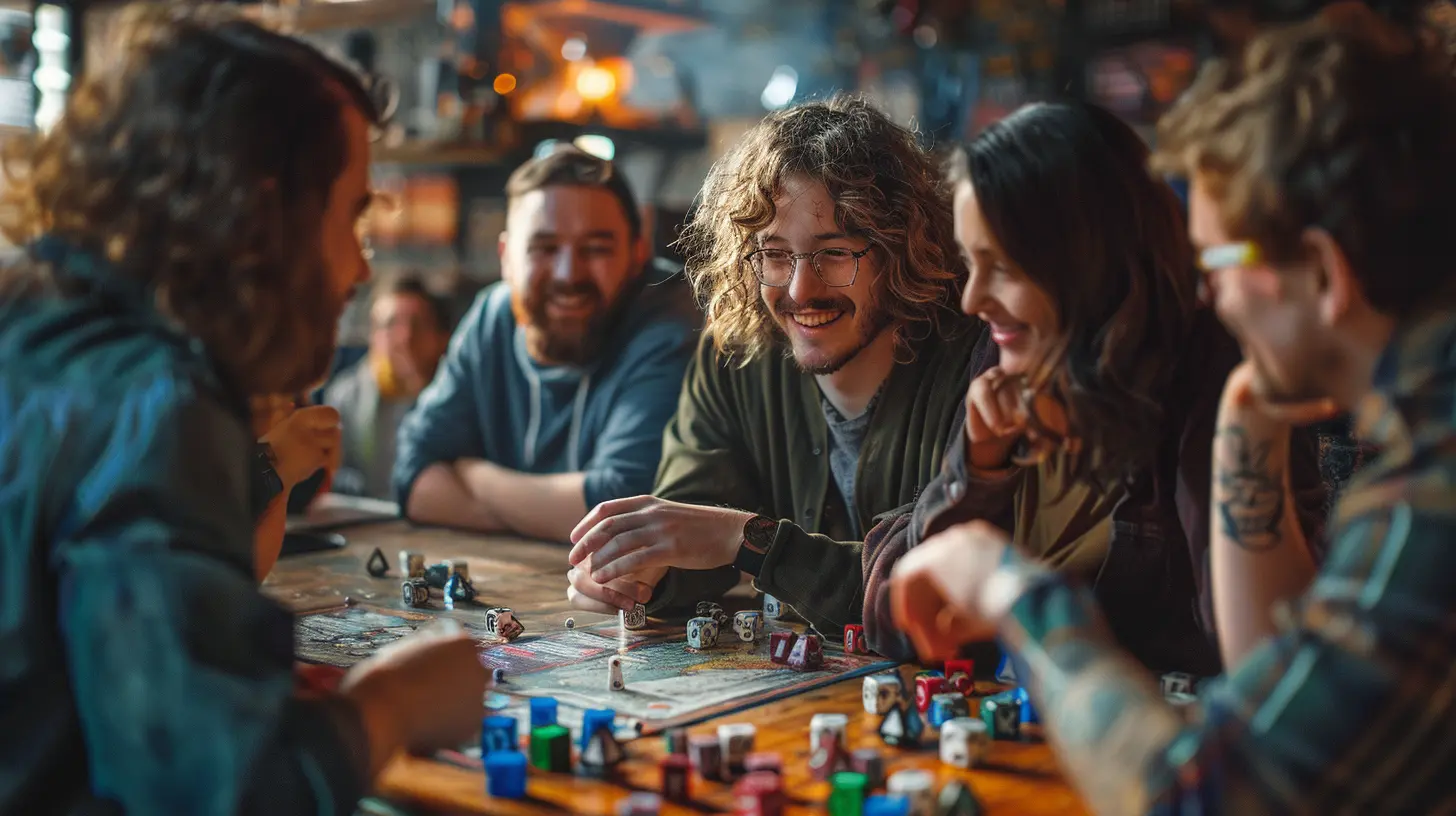
Emergent Storytelling
One of the coolest things about tabletop RPGs is how stories often emerge naturally from gameplay. Maybe a dice roll goes terribly wrong, and the bard accidentally starts a tavern brawl. Or maybe a player comes up with a wild plan that completely derails the DM’s original story. These unplanned moments often become the most memorable parts of the game.Let the Unexpected Happen
In narrative-driven video games, emergent storytelling can come from sandbox mechanics or dynamic systems. Look no further than The Legend of Zelda: Breath of the Wild. The game’s physics and systems allow players to solve puzzles or approach combat situations in ways the developers may not have anticipated. This freedom to improvise creates unique player-driven stories that feel just as engaging as scripted narratives.Takeaway: Give players tools and systems that encourage creativity. Sometimes, the best stories are the ones you didn’t plan.
Balancing Structure with Flexibility
If TTRPGs have taught us anything, it's that great storytelling requires a balance between structure and flexibility. While a DM might have a general outline for the campaign, they must adapt to the players’ choices, weaving them into the narrative.Building Flexible Video Game Narratives
Video games can achieve this balance too. Games like Outer Wilds and Undertale aren’t strictly linear, but they still guide players toward certain themes or plot points. The trick is to create a framework that supports exploration while ensuring the story remains coherent.Think of it like jazz. There’s structure, sure, but there’s also room for improvisation. Let the player riff on the melody instead of sticking to the script word-for-word.
Takeaway: Design narratives that adapt to player actions while still maintaining a clear core story. It’s a balancing act, but when done right, it’s incredibly rewarding.
Emotional Investment Through Roleplay
At the end of the day, the magic of TTRPGs lies in the roleplay. Players become their characters, forming emotional attachments to their triumphs and failures. When your choices feel personal, the stakes are higher, and the story hits harder.Making Roleplay Central to Video Games
To simulate this in video games, you need to immerse players in their roles. Use detailed character arcs, moral dilemmas, and tough choices to keep players emotionally invested. Games like The Last of Us and Life is Strange do this beautifully, making you feel every heartbreak and victory.Takeaway: Create stories that challenge players emotionally. When they feel like they are the character, their connection to the narrative deepens.
The Power of Imagination
Finally, let’s talk about the unsung hero of TTRPGs: imagination. In a tabletop game, much of the action takes place in your mind. Players visualize the world, filling in the gaps with their own creativity. And while video games provide visuals, they can still leave room for imagination.Don’t Over-Explain
Sometimes, the best narratives are the ones that leave a little mystery. Dark Souls is a perfect example. It doesn’t spoon-feed you the lore—instead, it scatters fragments across the world, encouraging players to piece the story together themselves. This approach invites speculation, discussion, and, ultimately, deeper engagement.Takeaway: Trust your players to use their imagination. You don’t need to explain every detail; sometimes, the gaps are where the magic happens.
Wrapping It Up
Tabletop RPGs are a treasure trove of ideas for crafting rich narrative games. They teach us to prioritize player agency, embrace collaboration, and let the story evolve organically. They remind us that the best stories aren’t just told—they’re lived.So, whether you’re building an open-world RPG, an indie narrative gem, or anything in between, keep these lessons in mind. Let your players shape the story, give them a world that feels alive, and leave room for the unexpected. That’s how you create a game that players will remember not just for hours, but for years.
all images in this post were generated using AI tools
Category:
Interactive StorytellingAuthor:

Lucy Ross
Discussion
rate this article
11 comments
Jacqueline Potter
Tabletop RPGs ignite creativity and collaboration! Embrace their lessons to craft immersive narratives that captivate players and elevate your game design.
April 8, 2025 at 3:45 AM

Lucy Ross
Absolutely! Tabletop RPGs are a goldmine for inspiring creativity and fostering collaboration—essential elements for crafting engaging narratives in game design.
Macey Jenkins
Tabletop RPGs: where imagination meets dice! Roll your way to epic narratives and unforgettable adventures!
February 3, 2025 at 4:04 AM

Lucy Ross
Absolutely! Tabletop RPGs inspire creativity and collaboration, allowing players to shape dynamic stories through their choices and dice rolls.
Azriel Reynolds
Great insights! Emphasizing character development and collaborative storytelling from tabletop RPGs can truly enhance narrative depth in video games. Well done!
January 26, 2025 at 3:50 PM

Lucy Ross
Thank you! I'm glad you found the insights valuable. Character development and collaboration really do add significant depth to storytelling in games.
Solaria McLaury
Imagination fuels immersive experiences!
January 23, 2025 at 3:26 PM

Lucy Ross
Absolutely! Imagination is the heart of immersive storytelling in tabletop RPGs, driving creativity and player engagement.
Harley Chapman
This article offers valuable insights into how tabletop RPGs can enhance narrative depth in games. The emphasis on player agency and collaborative storytelling is particularly relevant for developers seeking to create immersive and engaging experiences. Thank you for sharing!
January 21, 2025 at 3:37 AM

Lucy Ross
Thank you for your thoughtful comment! I'm glad you found the insights valuable for enhancing narrative depth in games. Player agency and collaboration are indeed key elements.
Edith Hensley
Embrace collaborative storytelling for immersive gameplay experiences.
January 20, 2025 at 5:35 PM

Lucy Ross
Absolutely! Collaborative storytelling enhances player engagement and creates dynamic narratives that evolve with each session. It's essential for rich, immersive gameplay.
Veronica McNaughton
Tabletop RPGs master the art of collaborative storytelling. Embrace player agency, dynamic world-building, and adaptable narratives to elevate your game design from mundane to memorable!
January 18, 2025 at 5:28 PM

Lucy Ross
Absolutely! Tabletop RPGs inspire us to prioritize player agency and dynamic storytelling, creating immersive experiences that truly engage participants. Let's incorporate these principles into game design for richer narratives!
Natalie McKeehan
Tabletop RPGs are a goldmine for crafting immersive narrative games. Their emphasis on player agency, collaborative storytelling, and character development provides invaluable lessons. By harnessing these elements, game developers can create rich, engaging experiences that resonate deeply with players. Let's elevate narrative gaming by embracing these proven techniques!
January 18, 2025 at 5:15 AM

Lucy Ross
Absolutely! Tabletop RPGs offer crucial insights into player agency and collaboration, essential for developing immersive narratives. Embracing these techniques can significantly enhance game storytelling.
Storm McCloud
This article brilliantly highlights key elements from tabletop RPGs that can enhance narrative games. Emphasizing player agency, collaborative storytelling, and immersive world-building is essential for creating engaging and dynamic gaming experiences. Great insights!
January 17, 2025 at 4:42 PM

Lucy Ross
Thank you for your kind words! I'm glad you found the insights on player agency and collaborative storytelling valuable for enhancing narrative games.
Levi McClary
What a fantastic read! Your insights on tabletop RPGs and their narrative depth are invaluable for game developers. Can't wait to see how these lessons shape future games!
January 17, 2025 at 4:33 AM

Lucy Ross
Thank you so much! I'm thrilled to hear you found it valuable. Excited to see how these insights influence the future of game development!
Matilda McIlroy
Oh, absolutely! Who needs a degree in storytelling when you can just roll some dice and hope for the best? I’m sure all those complex narratives just magically appear like a rogue character in a tavern. Genius!
January 15, 2025 at 4:23 AM

Lucy Ross
While improvisation and chance play a role, intentional storytelling and character development are essential for crafting immersive narratives in tabletop RPGs.
MORE POSTS

Multiplayer Modes You Never Knew Existed in Your Favorite Games

The Best Cooperative Puzzles in Multiplayer Gaming

The Role of Mods and Custom Content in YouTube Gaming
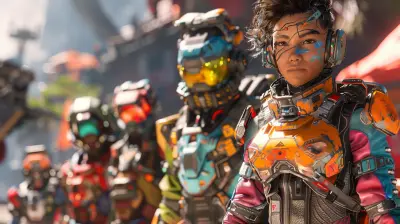
How the Update Improves Co-op Challenges and Team Play

Fusing Cultures: How Global Music Is Influencing Game Scores
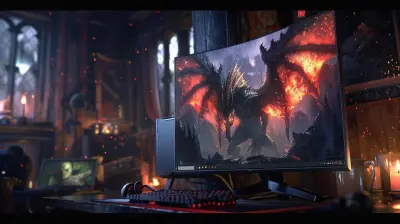
DirectX and Vulkan: What They Mean for Game Performance

Why Steam Workshops Are Revolutionizing Game Mods

The Dangers of Burnout: Surviving a Grueling Tournament Schedule